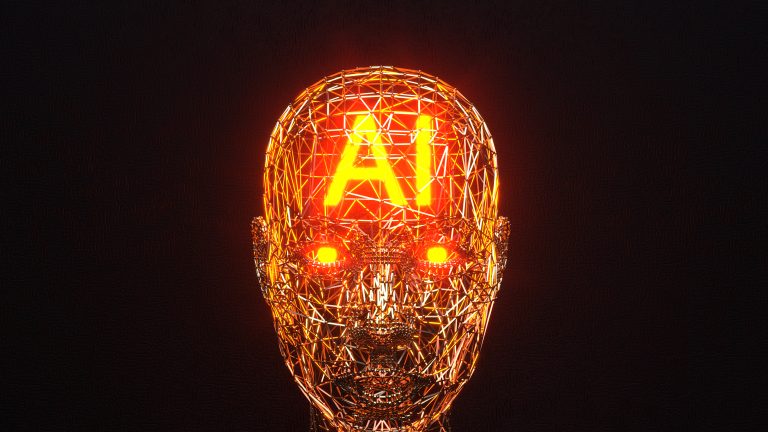As businesses increasingly look for ways to streamline operations, improve customer experiences, and drive growth, AI and machine learning are emerging as powerful tools in the world of customer relationship management (CRM).
By automating routine tasks, providing insights into customer behavior, and facilitating personalized experiences, AI and machine learning are transforming the way businesses approach CRM.
In this blog post, we’ll explore the impact of AI and machine learning on CRM, including examples of how these technologies are being used to improve customer data management, personalize customer experiences, and optimize sales and marketing strategies.
What is AI and Machine Learning in CRM?
AI (Artificial Intelligence) and machine learning are technologies that enable computers to learn from data and make predictions or decisions without explicit programming. In the context of customer relationship management (CRM), AI and machine learning can help businesses automate and optimize processes, gain insights from customer data, and personalize customer experiences.
Some examples of how AI and machine learning are being used in CRM include:
- Predictive lead scoring: AI algorithms can analyze customer data to identify the most promising prospects for sales teams to prioritize, increasing the efficiency of the sales process.
- Customer segmentation: Machine learning models can identify different groups of customers based on their behavior or preferences, allowing businesses to tailor their marketing efforts to each group.
- Sentiment analysis: AI can be used to analyze customer feedback, such as social media posts or product reviews, to determine their sentiment towards a brand or product.
- Churn prediction: Machine learning models can analyze customer behavior to identify those at risk of leaving, allowing businesses to intervene with retention strategies before it’s too late.
AI and machine learning are transforming the way businesses approach CRM by providing new ways to analyze customer data and improve customer experiences.
Improved Customer Data Management with AI and Machine Learning
One of the key benefits of using AI and machine learning in CRM is improved customer data management. These technologies can help businesses analyze large volumes of customer data more effectively, allowing them to gain insights that would be difficult or impossible to uncover manually.
Examples of how AI and machine learning can improve customer data management include:
- Automated data processing: AI algorithms can automatically categorize and analyze customer data, freeing up time for employees to focus on more high-level tasks.
- Personalization: Machine learning models can analyze customer data to identify patterns and preferences, allowing businesses to personalize their marketing and sales efforts.
- Customer service: AI-powered chatbots and virtual assistants can use natural language processing (NLP) to understand and respond to customer queries, providing a more personalized and efficient customer service experience.
- Fraud detection: Machine learning models can analyze customer behavior to detect fraudulent activity, such as credit card fraud or account takeover attempts.
CRM can help businesses manage customer data more effectively and gain insights that can inform their business strategies.
Personalizing Customer Experiences with AI and Machine Learning
Personalizing customer experiences is a key goal for many businesses, and AI and machine learning can be powerful tools for achieving this.
By analyzing customer data and behavior, businesses can identify patterns and preferences that can inform personalized recommendations, content, and offers.
Examples of how AI and machine learning can be used to personalize customer experiences include:
- Product recommendations: Machine learning models can analyze customer purchase histories and behavior to recommend products that are likely to be of interest, increasing the chances of a sale.
- Dynamic pricing: AI algorithms can adjust prices in real-time based on factors such as demand and inventory levels, allowing businesses to offer personalized pricing to individual customers.
- Content personalization: Machine learning models can analyze customer behavior to recommend personalized content, such as articles or videos, that are likely to be of interest.
- Chatbots and virtual assistants: AI-powered chatbots and virtual assistants can use customer data to provide more personalized responses and recommendations, improving the customer service experience.
AI and machine learning can help businesses create more personalized customer experiences, which can lead to increased customer satisfaction, loyalty, and revenue.
AI and Machine Learning for Sales and Marketing
AI and machine learning can be powerful tools for sales and marketing teams, allowing businesses to analyze customer data and behavior to identify opportunities for growth and optimization.
By automating routine tasks and providing insights into customer behavior, these technologies can help businesses work more efficiently and effectively.
Examples of how AI and machine learning can be used for sales and marketing include:
- Predictive lead scoring: AI algorithms can analyze customer data to identify the most promising prospects for sales teams to focus on, increasing the efficiency of the sales process.
- Marketing automation: AI-powered tools can automate routine marketing tasks, such as email campaigns or social media posting, freeing up time for employees to focus on more strategic activities.
- Customer segmentation: Machine learning models can identify different groups of customers based on their behavior or preferences, allowing businesses to tailor their marketing efforts to each group.
- Sales forecasting: AI algorithms can analyze past sales data to forecast future sales trends, helping businesses to plan for growth and allocate resources accordingly.
Using AI and machine learning for sales and marketing can help businesses work more efficiently and effectively, enabling them to identify new opportunities for growth and optimize their strategies.
Using CRM to Improve Customer Experience in the B2B Space
Customer experience is an increasingly important focus for businesses in the B2B space. By providing a seamless, personalized experience, businesses can build stronger relationships with their customers and increase loyalty and retention.
It can be a powerful tool for improving customer experience in the B2B space, allowing businesses to better manage and analyze customer interactions.
Examples of how CRM can be used to improve customer experience in the B2B space include:
- Centralized customer data: CRM allows businesses to store customer data in a centralized location, making it easier for employees to access and analyze. This can lead to a more personalized customer experience, as employees are better able to understand and anticipate customer needs.
- Improved communication: It can facilitate communication between different departments within a business, such as sales, marketing, and customer service. This can help ensure that customers receive consistent messaging and support across all touchpoints.
- Automated workflows: CRM can automate routine tasks such as follow-up emails or appointment scheduling, freeing up time for employees to focus on more high-level tasks such as building relationships with customers.
- Predictive analytics: By analyzing customer data, CRM can provide insights into customer behavior and preferences, allowing businesses to tailor their interactions to individual customers.
By providing a seamless, personalized experience, businesses can differentiate themselves from competitors and build a reputation for exceptional customer service.
Why is HubSpot the Best CRM?
HubSpot is a popular and well-regarded CRM due to its all-in-one platform, user-friendly interface, integration capabilities, automation features, and robust reporting and analytics.
However, it is important to note that different businesses have different needs and requirements. So, it’s important to evaluate multiple options and choose the CRM that best suits your business.
- All-in-one platform: HubSpot is an all-in-one platform that includes CRM, marketing, sales, and service tools, allowing businesses to manage all aspects of their customer relationships in one place.
- User-friendly interface: It makes it easy for businesses to navigate and use the platform, with drag-and-drop editors and customizable dashboards.
- Integration with other tools: It integrates seamlessly with a wide range of other tools and platforms, such as Salesforce, WordPress, and Shopify, making it easy for businesses to manage all aspects of their operations in one place.
- Automation capabilities: It allows businesses to automate routine tasks and workflows, freeing up time for employees to focus on more strategic activities.
- Robust reporting and analytics: It provides robust reporting and analytics capabilities, allowing businesses to track key metrics and gain insights into their performance.
Summary
In conclusion, the impact of AI and machine learning on CRM is significant and far-reaching. From improved customer data management to personalized experiences and optimized sales and marketing strategies, these technologies are changing the way businesses approach customer relationship management.
As AI and machine learning continue to evolve, we can expect to see even more innovative applications in the world of CRM. By staying ahead of the curve and leveraging these technologies to their fullest potential, businesses can gain a competitive edge, drive growth, and deliver exceptional customer experiences.






I see You’re in reality a excellent webmaster. This website loading speed is incredible.
It seems that you’re doing any unique trick. Furthermore, the contents are masterwork.
you have performed a excellent process on this subject! Similar here:
sklep internetowy and also here: Tani sklep
Good day! Do you know if they make any plugins to assist with SEO?
I’m trying to get my blog to rank for some targeted keywords but I’m not seeing very good success.
If you know of any please share. Kudos! You can read similar art here: Sklep internetowy
Hey there! Do you know if they make any plugins to help with Search Engine Optimization? I’m trying to
get my website to rank for some targeted keywords but I’m not seeing very good success.
If you know of any please share. Thank you! You can read similar
art here: Auto Approve List
Hello there! Do you know if they make any plugins to help
with Search Engine Optimization? I’m trying to get my website to rank for some targeted keywords but I’m not seeing very good success.
If you know of any please share. Thanks! You can read similar text
here: Good escape room
You are so cool! I do not suppose I’ve truly read through a single thing like that before. So nice to find another person with some unique thoughts on this topic. Really.. thanks for starting this up. This web site is one thing that’s needed on the internet, someone with a bit of originality.
I must thank you for the efforts you have put in writing this blog. I really hope to see the same high-grade content from you later on as well. In truth, your creative writing abilities has encouraged me to get my own website now 😉
Pretty! This has been an incredibly wonderful article. Thank you for supplying this info.
My day is coming to a close, but before it does, I’m reading this substantial piece of writing to advance my knowledge.
토토사이트
Oh my goodness, that’s what I was looking for, what a thing! existing here at this website, many thanks to the website’s administrator.
파워볼사이트